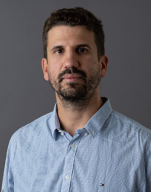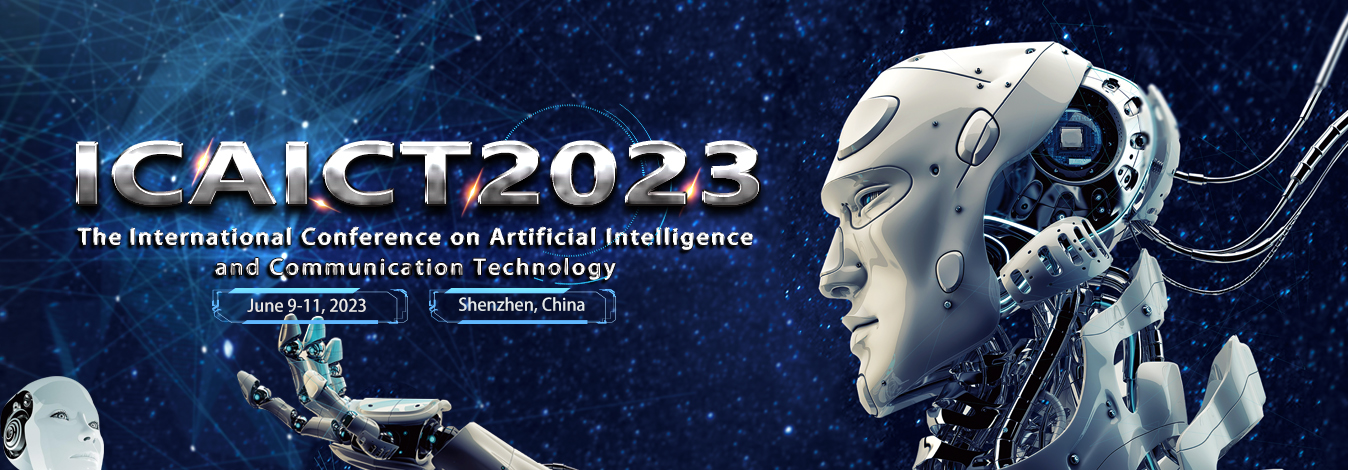Keynote Speakers

Prof. Mohammad S. Obaidat
University of Texas- Permian Basin, USA
Professor Mohammad S. Obaidat (Life Fellow of IEEE, Fellow of SCS and Fellow of AAIA) is an internationally known academic/researcher/scientist/ scholar. He received his Ph.D. degree in Computer Engineering with a minor in Computer Science from The Ohio State University, Columbus, USA. He has received extensive research funding and published To Date about One Thousand and Two Hundred (1,200) refereed technical articles-About half of them are journal articles, over 100 books, and about 70 Book Chapters. He is Editor-in-Chief of 3 scholarly journals and an editor of many other international journals. He is the founding Editor-in Chief of Wiley Security and Privacy Journal. Moreover, he is founder or co-founder of 5 International Conferences.
Among his previous positions are Advisor to the President of Philadelphia University for Research, Development and Information Technology, President and Chair of Board of Directors of the Society for Molding and Simulation International, SCS, Senior Vice President of SCS, Dean of the College of Engineering at Prince Sultan University, Chair and tenured Professor at the Department of Computer and Information Science and Director of the MS Graduate Program in Data Analytics at Fordham university, Chair and tenured Professor of the Department of Computer Science and Director of the Graduate Program at Monmouth University, Tenured Full Professor at King Abdullah II School of Information Technology, University of Jordan, Founding Dean and Professor, College of Computing and Informatics at The University of Sharjah, UAE and distinguished Professor at the Indian Institute of Technology-Dhanbad. He is also The PR of China Ministry of Education Distinguished Overseas Professor at the University of Science and Technology Beijing, China and an Honorary Distinguished Professor at the Amity University- A Global University and an Honorary Distinguished Professor at KASIT, University of Jordan.
He is now the Chair and Professor of Computer Science Department and Director of the Cybersecurity Center at the University of Texas- Permian Basin, USA. He has chaired numerous (Over 180) international conferences and has given numerous (Over 180) keynote speeches worldwide. He has served as ABET/CSAB evaluator and on IEEE CS Fellow Evaluation Committee. He has served as IEEE CS Distinguished Speaker/Lecturer and an ACM Distinguished Lecturer. Since 2004 has been serving as an SCS Distinguished Lecturer. He received many best paper awards for his papers including ones from IEEE ICC, IEEE Globecom, AICSA, CITS, SPECTS, DCNET International conferences. He also received Best Paper awards from IEEE Systems Journal in 2018 and in 2019 (2 Best Paper Awards). In 2020, he received 4 best paper awards from IEEE Systems Journal. In 2021, he also received the IEEE Systems best paper award. In 2021, he was ranked by Guide2Research as Number 1 Computer Scientist in UAE in terms of Number of Publications. He has received many best paper awards from IEEE International Conferences.
He also received many other worldwide awards for his technical contributions including: The 2018 IEEE ComSoc-Technical Committee on Communications Software Technical Achievement Award for contribution to Cybersecurity, Wireless Networks Computer Networks and Modeling and Simulation, SCS prestigious McLeod Founder's Award , Presidential Service Award, SCS Hall of Fame –Lifetime Achievement Award for his technical contribution to modeling and simulation and for his outstanding visionary leadership and dedication to increasing the effectiveness and broadening the applications of modeling and simulation worldwide. He also received the SCS Outstanding Service Award. He was awarded the IEEE CITS Hall of Fame Distinguished and Eminent Award. In recognition of his significant scientific contribution, Springer published in Feb 2022 a book honoring his contributions in Computing, Informatics, Networking and Cybersecurity. It is entitled: Advances in Computing, Informatics, Networking and Cybersecurity - A Book Honoring Professor Mohammad S. Obaidat’s Significant Scientific Contributions. He is a Life Fellow of IEEE, a Fellow of SCS and a Fellow of AAIA.

Prof.Kai Kit Wong
University College London, UK
Kai-Kit Wong (M'01-SM'08-F'16) received the BEng, the MPhil, and the PhD degrees, all in Electrical and Electronic Engineering, from the Hong Kong University of Science and Technology, Hong Kong, in 1996, 1998, and 2001, respectively. After graduation, he took up academic and research positions at the University of Hong Kong, Lucent Technologies, Bell-Labs, Holmdel, the Smart Antennas Research Group of Stanford University, and the University of Hull, UK. He is Chair in Wireless Communications at the Department of Electronic and Electrical Engineering, University College London, UK. His current research centers around 5G and beyond mobile communications. He is a co-recipient of the 2013 IEEE Signal Processing Letters Best Paper Award and the 2000 IEEE VTS Japan Chapter Award at the IEEE Vehicular Technology Conference in Japan in 2000, and a few other international best paper awards. He is Fellow of IEEE and IET and is also on the editorial board of several international journals. He is the Editor-in-Chief for IEEE Wireless Communications Letters since 2020.
Speech Title: Bruce Lee Inspired Fluid Antenna Systems for 6G
Abstract: “Be formless … shapeless, like water!”, which were the words used by Bruce Lee, as he was revealing the philosophy of Jeet Kune Do, the martial arts system Lee founded in 1967. Many parallels can be drawn in wireless communications technologies where engineers have been seeking greater flexibility in using the spectral and energy resources for improving network performance. In this talk, I will speak on a novel antenna technology, referred to as fluid antenna, that adopts a software-controlled, position-flexible antenna to operate on the best signal envelope within a given space. This talk presents some preliminary results on fluid antenna systems, which shows great promises on improving wireless communication performance.
Keywords: 6G, fluid antenna, multiple access, wireless communications

Prof. Claude Carlet
University of Paris 8, France
Occupation: Member of the Department of Informatics of the university of Bergen (Selmer Center) (Norway).
Professor Emeritus of mathematics at the University of Paris 8, Laboratory LAGA (Univ. of Paris 8 - Paris 13, CNRS, France).
Research: 130 papers in international journals (among which 46 in IEEE Trans. Inf. Theory, 24 in Des. Codes Cryptogr.) and 78 in the proceedings of international conferences (among which 5 CRYPTO, 4 Eurocrypt) see https://dblp.uni-trier.de/pid/97/6074.html . Recent book, more than 500 page long (see https://www.cambridge.org/core/books/boolean-functions-for-cryptography-and-coding-theory/087A2BAC6140B96526526294F7265405#fndtn-information ).
21 plenary invited talks and tutorials in international conferences, 30 other invited talks (international conferences on invitations or shorter invited talks in international conferences).
Supervision of 18 Ph. D. theses
IACR Fellow 2022
Member of European Science Foundation (ESF) College of Expert Reviewers and of the FWO Review College (panels 2022 – 2024).
Expert in the FWO Review College
Member of the Steering Committees of the Workshop WAIFI and of the George Boole International Prize.
Participations in 100 program committees of international conferences among which 14 as co-chair.
Speech Title: Boolean functions and their use in symmetric cryptography
Abstract: Boolean functions play a central role in the security of stream and block ciphers (in symmetric cryptography). They are functions mapping binary vectors of some length to either bits (in which case we have Boolean functions strictly speaking) or to binary vectors (of the same length or of another length, we are then speaking of vectorial Boolean functions). In the first case, they play roles in stream ciphers and in the second case, they are used as substitution boxes in block ciphers.
Being in each case the only nonlinear components of the ciphers, they are essential to their security. They are also the main components of the ciphers whose choice induces the speed. A tradeoff must then be found when choosing them between the security and the speed of the cipher. The AES winner (used nowadays as a NIST standard for civil encryption) has been chosen because it allowed the best tradeoff.
We shall describe what are the main results on them and what are the main open problems they pose currently.
Keywords: Boolean function, stream cipher, block cipher, algebraic immune function, almost perfect nonlinear function

Prof.Michalis Matthaiou
Queen’s University Belfast , UK
Dr Michalis Matthaiou is currently a Professor of Communications Engineering and Signal Processing and Deputy Director of the Centre for Wireless Innovation (CWI) at Queen’s University Belfast, U.K. During his 17-year career, he has developed innovative solutions for 4G/5G/6G wireless communications underpinned by 230 research papers and multi-million competitive funding. Dr. Matthaiou and his coauthors received the IEEE Communications Society (ComSoc) Leonard G. Abraham Prize in 2017. He currently holds the ERC Consolidator Grant BEATRICE (2021-2026) focused on the interface between information and electromagnetic theories. He was awarded the prestigious 2018/2019 Royal Academy of Engineering/The Leverhulme Trust Senior Research Fellowship and also received the 2019 EURASIP Early Career Award. His team was also the Grand Winner of the 2019 Mobile World Congress Challenge. He was the recipient of the 2011 IEEE ComSoc Best Young Researcher Award for the Europe, Middle East and Africa Region and a co-recipient of the 2006 IEEE Communications Chapter Project Prize for the best M.Sc. dissertation in the area of communications. He has co-authored papers that received best paper awards at the 2018 IEEE WCSP and 2014 IEEE ICC and was an Exemplary Reviewer for IEEE Communications Letters for 2010.
